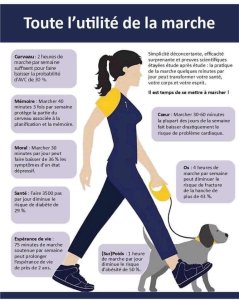Création d'un sapin en carton
- Autre

Les boîtes ont été collées les unes aux autres.
Des caisses lestées l'aide à tenir droit (juste au cas où...)
Energy balls pour venir en stage
- Gourmandises en forêt

-120g de noisettes grillées
- 140g de noix de cajou
- 2 cuillères à soupe de cacao
- 60g de dattes
- 60g de raisins secs
- 4 cuillères à soupe d'eau
S'il reste quelques morceaux, ce sera plus croustillant!
Prendre un peu de pâte avec une cuillère à café et formez une boule avec vos mains.
Placez toutes les boules 1 ou 2 heures au frigo.
Faites le plein d'énergie !
Le p'tit bonhomme des bois (H)
Le p'tit bonhomme des bois (L)
Mirliton sans frontière
- Création à reproduire

- Commence par repérer un spot de renouée du Japon. Cette plante invasive nous intéresse car elle est creuse et on la trouve en abondance.
- Sur place, récolte une tige brune foncée (donc déjà boisée) et scie un tronçon entre deux noeuds. Tu obtiens un tube de 10-15 cm. Attention, laisse bien tous les déchets de la plante sur place pour ne pas dicéminer la renouée qui est une championne du voyage sans frontière!
- Avec une lime à bois, creuse une petite encoche à environ 2cm d'une extrémité du tube.
- Passe un petit coup de papier ponce (grain fin) sur cette même extrémité.
- Ferme l'extrémité avec un papier de soie ou un plastique fin que tu fixes grâce à un élastique.
- une petite scie à main
- du papier ponce grain fin
- une lime à bois
- un petit morceau de papier de soie ou de plastic fin
- un petit élastic
Top 3 des airs au mirliton:
1 : le vol du moustique
2 : la voiture de course
3 : Joyeux anniversaire
Pomme sur le feu de bois
- Gourmandises en forêt

Sirop de fleurs de sureau
- Gourmandises en forêt

30 grappes et ne garder que les fleurs, 2 kg de sucre, 1 litre et demi d'eau, 1 gros citron (ou 2 petits) non traité et coupé en rondelles, 50 gr d'acide citrique (que l'on achète en pharmacie).
Le tout dans une casserole - Laissez 5 à 6 jours dans un endroit frais recouvert d'un essuie et mélanger 2 fois par jour.
Passez à l'étamine et mettre en bouteille (elle se garde 1 an à l'abri de la lumière)
Sober Romance Why We Act Like Teenagers When It Comes to Relationships


Was I really at an AA meeting as I claimed, or was this the night that I—and all hope for our marriage—would vanish anew?
For my wife Patricia and me, it’s been a long road to even. Ish.
My wife said “I do” in April 2007 to a man who, despite depression and anxiety issues, did not suffer from addiction. The honeymoon period didn’t last long: By 2009, I was a full-blown alcoholic. A year later I became unemployed and, as substances other than alcohol steepened my spiral, unemployable.
After a semi-successful rehab stint in early 2011, I began stringing together sober weeks instead of days, disappearing once a fortnight while my wife waited hopelessly. Finally, with one of Patty’s feet firmly out the door, I started my current and only stretch of significant sobriety in October 2011.
We’d been wed just 4½ years, and the rollercoaster marriage dynamic was about to take its third sharp turn. Patty had gone from a warm wife to a cold caretaker – from a blushing bride to blushing with anger and embarrassment as her husband descended into addiction and all its indignities. She was fed up and worn down.
And now she would be asked to transition yet again, to cede the necessary high ground she’d claimed so that someday, hopefully, we could once again stand on even footing.
Our journey together has been imperfect, but has taught us both about how addiction warps the dynamics of a marriage – and how that damage can be repaired in recovery. For couples committed to staying together in addiction’s aftermath, let’s explore likely marital dynamics at three stages of single-spouse alcoholism: active addiction, fledgling sobriety and long-term recovery.
Active Addiction
Ironically, perhaps the least complicated dynamic any marriage can have is when one partner is mired in active addiction. One spouse has lost all credibility and the capability to make mutually beneficial contributions, while the other has, onerously, had the scales of responsibility tilt completely into her lap - or, more accurately, fall on her head. The addict has been stripped of all rightful respect and authority; he is a nuptial nonentity, because adulthood is a prerequisite for marital influence.
Simply put, my wife signed up for a husband and got a child instead.
The logistical stress my wife shouldered—scraping by on one income, coming home to a drunk husband in a smoke-filled apartment, the transparent excuses and laughable lies—should be familiar to most spouses of alcoholics.
Throughout this stage, the marital power dynamic is non-negotiated and unsustainable. It is also deeply scarring, for both parties. My guilt and shame, her resentment and disappointment. My elaborate schemes and emphatic denials, her eroding ability to give me the benefit of the doubt. For us both, a creeping sense of confusion, hopelessness and doom.
All of this creates a silo effect. The deeper my bottom fell, the higher the wall between us rose. For the marriage to once again become... well, a marriage—a union of two equal halves—the walls would need to crumble. But they had to crack first.
And then, after one last humiliation comprised of a drunken hit-and-run and handcuffs, I was finally done.
A marriage stumbling on a high wire now had a chance to regain some balance. But for couples, one spouse’s early recovery can shake like an earthquake, causing seismic shifts to a power dynamic that, though broken, proves nonetheless stubborn.
Fledgling Sobriety
However simple (albeit awful) the marital dynamic during active alcoholism, the relationship during nascent sobriety becomes, conversely, exceedingly complex. This timeframe is crucial to the marriage’s long-term survival, as both parties simultaneously try to heal fresh wounds, regain some semblance of normalcy and find a workable path forward together.
For Patty and me, my fledgling sobriety was, at the same time, emergency and opportunity. This might not have been my last chance at recovery, but it was likely our marriage’s last chance at enduring.
In those vital first months, the power dynamic shifted dramatically, despite my wife’s understandable reluctance to budge an inch lest I take several yards. After being on the receiving end of years of lying about our actions and whereabouts, our spouses struggle to believe we’ll come home at all, let alone come home sober. Was I really at an AA meeting as I claimed, or was this the night that I—and all hope for our marriage—would vanish anew? The PTSD of a waiting wife, burned too many times to trust, is an excruciatingly slow-mending injury.
That injury is soon joined by insult. Because my wife watched as perfect strangers did something her most fervent efforts could not: get and keep her husband sober.
She felt suspicious, and scornful... and guilty for feeling either. Her downsized role in my recovery seemed unfair given the years wasted playing lead actor in a conjugal tragedy.
Sponsored Ads
Looking For Women For Marriage? Try Loveawake Free Dating Site:Guatemala Women Near You For Marriage
Find Bosnia And Herzegovina Ladies For Marriage
Chinese Mail Order Brides
Find Mexico Girls For Marriage
Japanese Girls Free Marriage Site
For alcoholics, swallowing pride is a life-and-death prospect pounded into our heads by program literature, AA meetings and sponsors. For their spouses, though, this ego deflation is just as necessary to the survival of their marriage, and generally comes without guidance or reassurances. Considering this, my wife’s humility-driven leap of faith was far more impressive than my own.
And throughout this, she was forced to cede more and more marital power to a man who, mere months ago, deserved all the trust afforded an asylum patient. I was gaining friends, gaining confidence and, sometimes, even gaining the moral high ground.
When your spouse has been so wrong for so long, the first time he’s right is jarring. Somewhere in my wife’s psyche was the understandable yet unhealthy notion that the one-sided wreckage of our past absolved her of all future wrongdoing. Fights ensued as I argued for the respect I was earning while she clung to a righteousness never requested but reluctantly relinquished. Unilateral disarmament—intramarital or otherwise—is counterintuitive and, given my history, potentially unwise.
The harsh truth was that the marriage had to become big enough for two adults again, and the only way that could happen was for one partner to make room. This is patently unfair and, I believe, a key reason many marriages end in early recovery. That my wife and I navigated this turbulent period is among the most gratifying achievements in each of our lives.
Long-term Recovery
Our road became considerably less rocky when my wife, for the first time, became more certain than not that her husband’s sober foundation was solid enough to support a future. For us, that unspoken sigh of relief came about 18 months into my recovery, though this timeframe can vary widely.
For couples, an invaluable asset ushered in by long-term recovery is the ability to openly address not only each individual’s feelings, but the likely influencers behind those feelings – especially those concerning the disparate, often difficult-to-pinpoint damage one spouse’s alcoholism inflicted upon both partners’ psyches. My wife and I each have our own semi-healed, often subconscious wounds that, still frequently, reopen in the form of a visceral repulsion, reflexive resentment or other knee-jerk reaction.
At times, then, there remains residual weirdness between us. But the reassurance of my reliable recovery provides safe harbor to explore these issues as our marriage’s power dynamic draws ever closer to even.
Many of these mini-problems are a blend of individual personalities and lingering, addiction-related trauma. My wife and I both have foibles that, we agree, are part intrinsic and part PTSD; fully parsing the two is impossible, even when examining ourselves rather than each other.
An example: My wife is markedly introverted, and I certainly know her better than anyone. But even for her closest comrade—me—praise and positive acknowledgement come sporadically at best. At least some of this, she admits, is not simply her quiet nature but rather a prolonged hangover from years of my alcoholic drinking. Perhaps seven years is too little time for proactive cheerleading; check back with us in another seven.
There are also times when my 12-step recovery delivers on its promise of making me, as the saying goes, “weller than well.” For my wife, who’s been consistently well enough her whole life—insomuch as she’s never sideswiped a taxi blind drunk and then tried to outrun a cop car—sometimes this growth is mildly threatening, especially in terms of our still-tightening power dynamic. Her character defects were never so dangerous that they required emergency repair. Still, as my demeanor has become less volatile, there has been a softening of her own character. Whether this is her absorbing some of my progress or simply letting her guard down another notch is anyone’s guess – including hers.
No matter the progress, we will both always be damaged, however minimally, by my addiction – a permanent weight that makes truly equal marital balance unlikely, if not impossible. We will always be better at forgiving than forgetting, and the inability to accomplish the latter carries a weight that tips scales, slightly but surely.
We have, we believe, as much balance as possible considering where we were and where we are now. For couples with a spouse in long-term recovery, appreciation for that tremendous leap forward in fortune can more than make up for the inherent inequality addiction inflicts on a marriage - a gap that shrinks substantially but never completely closes.
Viking (H)
Viking (R)
viking (R) / semaine 2 congé printemps

vinking (L) / semaine 1 congé printemps

